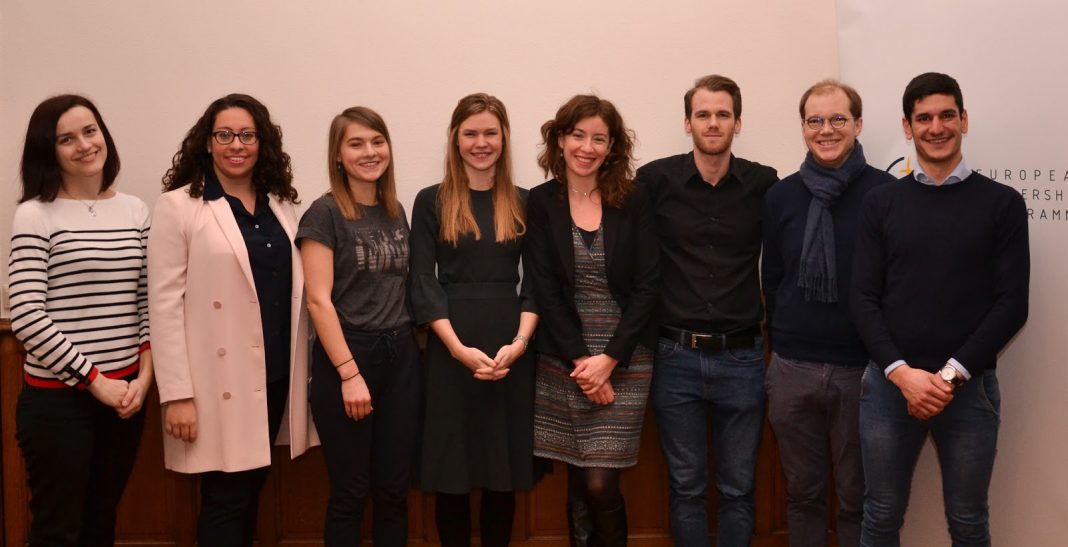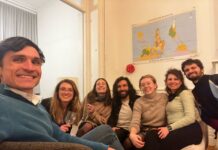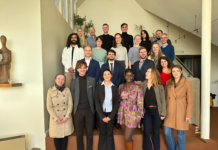Every one of us has different talents, skills and ways of thinking. We have to consider that as a blessing and always learn through ours and the mistakes of others.
On Friday 13th of March, the European Leadership Programme (ELP) Fellows were delighted to listen, Virginie Martins de Nobrega, an international lawyer and mediator with +15 years of experience in understanding, preventing and resolving conflicts in highly political or commercial arenas, including genocide and mass atrocities.
What happened in the session?
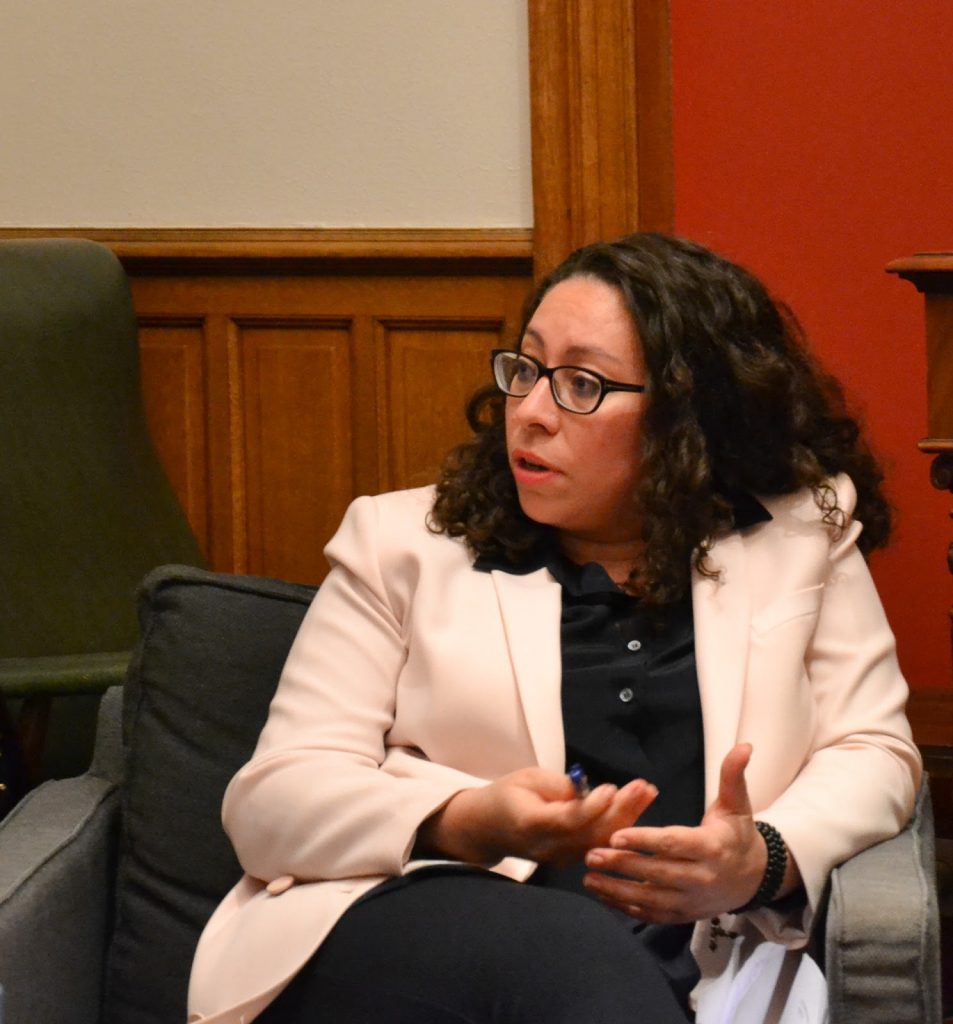 A heart-to-heart conversation with the expert that has had various international experiences in the spectrum of international affairs and relations within the United Nations system, the European institutions and the law firms, has encouraged us on deeper thinking what means to build a career on ethics. It is definitely hard to decide whether it is a better way of building your own career path by standing up to injustice, fighting for someone’s rights as a lawyer/politician, or by standing up for your own values. The best way would be to united is both by following our fundamental values in professional and private vocation.
A heart-to-heart conversation with the expert that has had various international experiences in the spectrum of international affairs and relations within the United Nations system, the European institutions and the law firms, has encouraged us on deeper thinking what means to build a career on ethics. It is definitely hard to decide whether it is a better way of building your own career path by standing up to injustice, fighting for someone’s rights as a lawyer/politician, or by standing up for your own values. The best way would be to united is both by following our fundamental values in professional and private vocation.
In the desire to become the best and with the hope of building ourselves into great leaders, we have listened to many different lectures and taken different formations. We wanted to make changes in the environment we lived in, but much broader than that, we didn’t want to be some leaders that everyone follows without thinking. We also didn’t want to be unconditionally led by someone or by society, but rather wanted to be a quiet change in our community and society.
With her testimony of work ethic, Virginie Martins de Nobrega affirmed that each of us needs to discover what leadership represents to ourselves and that we need to find our foundation in our values and faith and do not make any compromises. She emphasized that we should not allow society to assign us the roles we have to play in it, but rather find our role and create norms through our actions. The norms need to be created especially in an environment where we are confronted with the difference between what we want and what is real and thus create a new reality.
The people around us will not often recognize the good we do, and if something is against our values, we should be ready to act.
One of the ways is silence because in this way we are saying that we do not agree with something. However, it should be used in specific situations. In every aspect, as a very charismatic communicator, Virginie encouraged us to remain honest and fair, and even if we are confronted with the case of major criminals who have committed mass atrocities, we should also treat them with respect as all human beings. Real leaders should hold on to their values, speak with the arguments when is needed, and bravely and heartily take what they believe in, even if it means they should quit and be rejected by others.
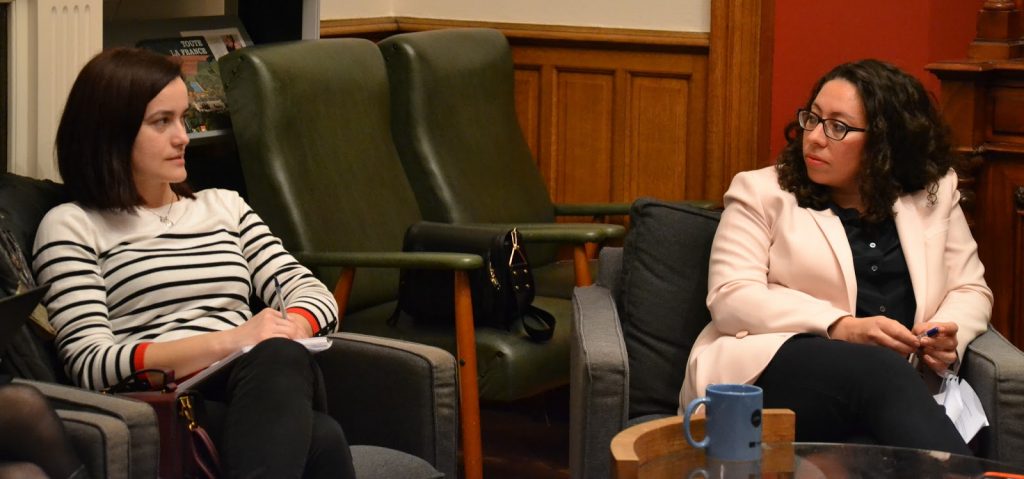
The leaders should always be surrounded by other people, be inclusive and learn from those who have more knowledge about something. At the same time, they shall nurture time for themselves, stay quiet and meditate, because silence is very powerful and is able to answer any questions. Leadership is no longer just a way of imitating those individuals we consider to be good leaders, it certainly includes that, but is much more than just that. Leadership is about discovering through countless attempts, successes and failures what is good for a given opportunity, complexion and ultimately learning, both from our own experiences and from those who are successful. Mirroring is certainly one of the ways in which a person functions, so it is necessary to turn to those people who are desirable to emulate and learn through similar cases.
According to the fact that good leadership means constant learning and improving good skills and knowledge, it seems that we have to be aware of every single change and demand for a new approach. In the area of global and digital fast changes, we should persist in professional growth by learning, making fewer failures, but still exploring our way of leadership style. Every one of us has different talents, skills and way of thinking, and we have to consider that as a blessing and always learn through ours and the mistakes of other people around us.
By Slađana Lovrić
ELP 3rd Cohort Fellow

